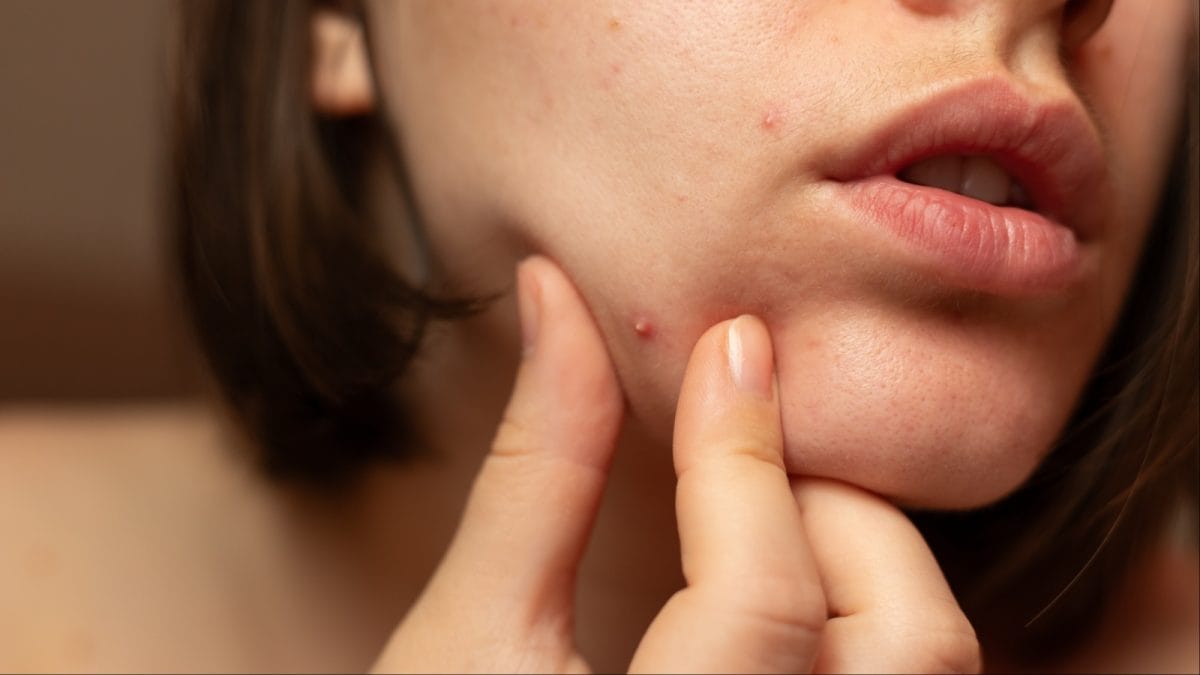Last Updated:
Consuming too much sugar can cause a rapid increase in blood glucose levels, leading to a chai of hormonal and inflammatory responses that can harm the skin.

Excess sugar spikes insulin, increasing oil production and acne.
That slice of cake, fizzy soda, or sugary snack may satisfy your cravings, but its effects on your skin are far from indulgent. Excess sugar triggers a cascade of internal reactions that can inflame, age, and compromise the skin’s natural defences. While skincare routines often focus on topicals and treatments, the real transformation begins from within – starting with what you put on your plate.
Hormones, Oil, and Acne: The Sweet Trap
Recommended Stories
Dr. Neeharika Goyal, MD, Dermatologist at Svastam Wellness Skin Clinic, Delhi, explains, “Excessive sugar can cause a quick spike in blood glucose levels, triggering a cascade of hormone and inflammatory responses that deplete the skin. One of the prime suspects is insulin, which spikes in response to high sugar levels. High insulin also pushes androgen levels, which stimulate oil production.”
This excess oil, combined with clogged pores, creates the perfect environment for acne-causing bacteria. Chronic sugar consumption also fuels glycation – a process where sugar molecules attach to collagen and elastin, breaking down structural proteins. According to Dr. Goyal, “Glycation not only destroys the elasticity of the skin but also worsens rosacea and eczema by causing inflammatory responses.”
Oxidative Stress and the Ageing Factor
Dr. Geetika Srivastava, MD, Dermatology at Influennz Clinic, Delhi, highlights another hidden danger: “Elevated blood glucose increases oxidative stress, producing free radicals that damage skin cells and accelerate ageing. The skin becomes less able to heal acne scars and defend against environmental aggressors.”
High-sugar diets also push nutrient-rich foods off your plate. Without antioxidants like vitamins A, C, and E, your skin loses essential repair mechanisms. Dr. Srivastava adds, “Without these vitamins, the skin’s protective barrier is broken, rendering it sensitive, dry, and prone to infection.”
The Gut Connection
Sugar’s impact extends beyond hormones and oxidative stress. Dr. Goyal points out that processed sugar destabilises the gut microbiome, which can trigger systemic inflammation manifesting as redness, swelling, or breakouts. Essentially, your digestive health and skin health are intertwined – what disrupts one often affects the other.
Eating for Glow and Resilience
The experts agree: dietary choices play a crucial role in achieving healthy, radiant skin. Incorporating low-glycaemic foods like vegetables, whole grains, and healthy fats can keep insulin levels steady, minimise inflammation, and protect the skin’s structural proteins.
Ultimately, glowing skin is not just about serums or facials. Reducing sugar intake, balancing nutrient-dense meals, and focusing on internal health provide long-term, sustainable results. By treating your body as the foundation for your skincare regimen, you can minimise breakouts, inflammation, and premature ageing – proving that real beauty truly begins from within.
Delhi, India, India
October 07, 2025, 15:36 IST
Loading comments…
Go to Source
Author: News18



